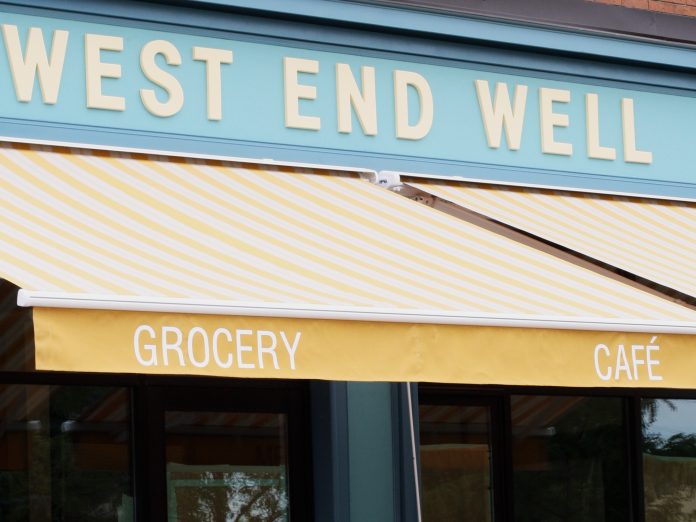By Francella Fiallos –
Nearly one year after it opened, the West End Well near the corner of Wellington and Garland Streets may shut its doors due to dwindling finances.
“We promised to be transparent about our financial updates,” the update read. “So here it is – if revenue does not increase significantly in the next 60 days, the West End Well will have to close.”
The West End Well is a cooperatively run cafe, grocery, meeting space and lending library with around 720 members.
Co-op members pay a $50 lifetime fee to build shares from the Well and to participate in its vision and direction. Unfortunately, a bulk of these members haven’t been making the commitment to shop regularly at the West End Well, according to board member Bill Shields.
“We’re trying to find the way this community wants food,” he said in a recent email to members. “If a core group of members spent $100-$150 a month, we’d be fine.”
This past winter was particularly hard on the West End Well and the Hintonburg restaurant scene as a whole. Sales at the West End Well dropped 35 per cent, which meant that the board had to reduce operating costs.
When spring rolled around, things at the West End Well were looking good – just not good enough.
“We thought we’d be in good shape,” Shields said. “We made $65,000 a month in sales, but we need to reach $80,000.”
In order to reach out to members and provide transparency, multiple members’ meetings have been held to see what the issues may be and how to resolve them.
One of the biggest problems, Shields says, is the perception that there isn’t a wide enough selection at the West End Well.
While the Well doesn’t carry well-known brand names, it does offer plenty of options for most items such as olive oil, tomato sauce, and cereals.
Still, for co-op member Jennifer Shepherd, not finding commercial items stocked on the shelves takes some getting used to.
“(The Well) is much smaller than the groceries I’m used to shopping,” she says. “But, I need to change my own behaviour.”
Jessica Lax, a coop member since last August, has already adjusted her habits in order to support the Well.
“I hope there is a big turnaround,” she says. “I’ve since dedicated more effort into putting the extra five minutes to head out there.”
The West End Well is not looking to compete with Loblaws or Metro, superstore chains that tend to cater more to people who want something fast, cheap, easy and some would say, unhealthy. The Well, on the other hand, is for people who cook.
“We think we carry what you need for the next three to five days, not the stuff you need every month,” says Shields.
The cooperative business model has allowed for the business to be run in a much more inclusive way than most stores in the community. What that means for consumers is that they have a certain responsibility to the West End Well, and how it should be run.
“There’s a different relationship with the store, you get to participate democratically and really understand what this all means,” Shepherd says.
However, when asked what led to the West End Well’s uncertain future, both Lax and Shepherd were confused since they both thought the business had thrived throughout the year.
Clarifying communications and being relentlessly transparent with members are just some of the ways the West End Well can turn things around. But that doesn’t mean the Well won’t stop experimenting.
In order to lessen the strain placed on finances, the West End Well’s board of directors are considering a monthly subscription model that can be used as a credit for purchases at the store.
As for the events, it turns out that community gatherings have consistently been successful and have led to many packed rooms, says Shields.
Should the Well close down, most of its money would go to closing costs and share redemptions to each of its members.
“We’re hoping that we don’t go there,” says Shields. “There’s no way this can’t work.”
